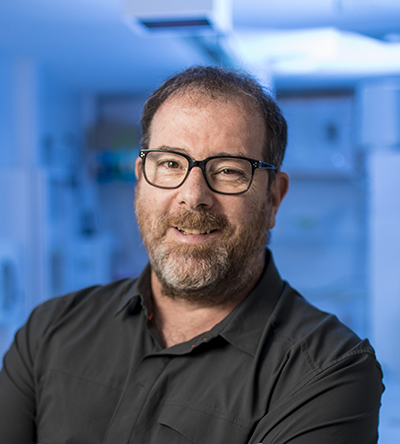News
Billy Hudson’s Aspirnaut program featured on NBC Nightly News with Lester Holt on August 2nd.
Aug. 3, 2022—In Grapevine, Arkansas students spent more than two hours on the school bus every day for years. Local scientist Billy Hudson saw that time as an opportunity to create a “magic” school bus with internet and computers where students could spend time learning. Now, more than a decade later, Hudson and his wife have taken...
Mathers Foundation award supports study of crosstalk between skeletal, immune systems
Jul. 8, 2022—Jim Cassat, MD, PhD, associate professor of Pediatrics, Pathology, Microbiology and Immunology, and Biomedical Engineering, has received a three-year, $750,000 award from the G. Harold and Leila Y. Mathers Foundation to support research exploring the interplay between bone homeostasis and infectious disease. The Mathers Foundation’s mission is to “advance knowledge in the life sciences by...
Vanderbilt School of Medicine Basic Sciences names renowned scholar John Kuriyan as next dean
Jun. 21, 2022—Vanderbilt University has named John Kuriyan, one of the world’s leading structural biologists, as its next dean of the School of Medicine Basic Sciences, C. Cybele Raver, provost and vice chancellor for academic affairs, announced today. Kuriyan’s appointment, effective Jan. 1, 2023, will advance the university’s goal of expanding its global research impact by leveraging...
Bacterial battle in 3D
Jun. 2, 2022—Staphylococcus aureus (“staph”) is an increasingly antibiotic-resistant bacterial pathogen that can cause a variety of life-threatening illnesses. Researchers at Vanderbilt University School of Medicine have developed integrated molecular imaging techniques that can produce 3D views of the battle between invading pathogens and the body’s immune defenses down to the subcellular level. In their latest advance,...
The academic startup guy: Larry Marnett, founding dean of Basic Sciences
Jun. 1, 2022—In the early 1960s, young Larry Marnett received his amateur radio license from the Federal Communications Commission. He put up an antenna outside his Kansas City, Kansas, home and began tapping away in Morse code. “It was just so cool to be ‘talking’ to someone in California or Canada,” Marnett recalled. After a conversation, radio...
Discovery of mosquito survival tactics leaves room for new disease vector control tactics
Jun. 1, 2022—The appendages that protrude from a mosquito’s head hold the sensory systems that account for nearly all of its ability to detect and respond to a wide range of chemical signals that are critical for its reproduction and its survival. At the molecular level, these systems rely on genes that make up three families of...
Study identifies first cellular “chaperone” for zinc, sheds light on worldwide public health problem of zinc deficiency
May. 19, 2022—We need zinc: one-tenth of the proteins in our cells require this metal for their normal functions in all aspects of cell metabolism. We acquire zinc by eating it — in foods or multivitamin supplements — but up to 30% of people in some parts of the world are at risk for zinc deficiency, which...
Resistance to COVID-19 drug detected in lab study
May. 12, 2022—The virus that causes COVID-19 can develop partial resistance to the antiviral drug remdesivir during infection of cultured cells in the laboratory by more than one mechanism. The results of the laboratory study led by researchers at Vanderbilt University Medical Center and published April 28 in the journal Science Translational Medicine support the importance of...
Coffey, Crowe, Denison honored with research excellence awards
May. 5, 2022—The 2022 Vanderbilt University School of Medicine Academic Enterprise Awards for Excellence in Teaching, Extraordinary Performance of Clinical Service, and Outstanding Contributions to Research were presented April 29 during the annual spring faculty meeting. The recipients include…
The Skaar lab discovers how bacterial pathogen survives without water
May. 5, 2022—The pathogen Acinetobacter baumannii can survive on hospital surfaces — without water — for months, an ability that has helped it become a leading cause of hospital-acquired infections. Now, a team of Vanderbilt researchers has discovered a mechanism this bug uses to live in a dried-out state: it produces “hydrophilin” proteins that protect against water...







